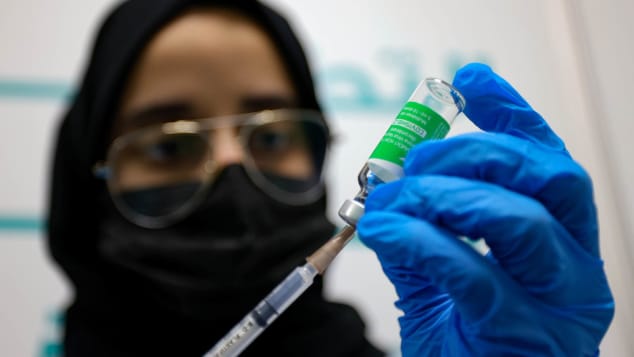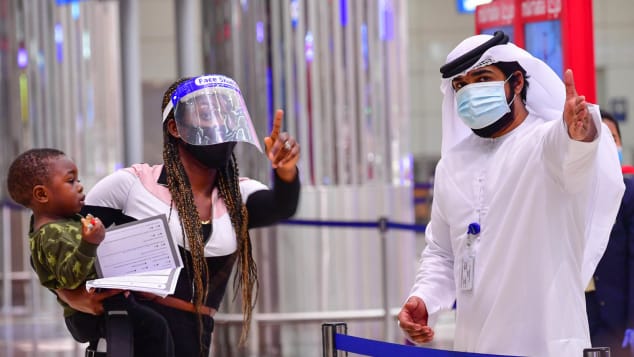
[ad_1]
‘One of my favorite cities’

Pictured in February 2021, a Dubai health worker prepares an injection of the OxfordAstraZeneca vaccine.
KARIM SAHIB/AFP via Getty Images
CNN spoke to several digital nomads who have applied for the remote working visa, who cited Dubai’s lifestyle, its weather and its relative affordability in comparison to other expat centers such as Singapore or Hong Kong as prime reasons to relocate.
Peter Walsh, co-founder of an education company in Canada, says he applied for the visa as he’d lived in Saudi Arabia as a teenager and Dubai remains “one of my favorite cities.”
Daily reported Covid-19 cases
He planned on working remotely from the UAE for up to a year to begin with, and possibly extending after that.
“I was originally planning to take out the family for an extended break. Maybe as a bonus, get vaccinations while we’re there,” Walsh says.
“It’s been a tough year with Covid so getting a break was my main motivation.”
Walsh applied for the visa on February 16 and was issued an entry permit on March 2. From there, he has 60 days to enter Dubai. However, with Canada introducing a 14-day quarantine for those returning from abroad, and with relatively high costs for sponsoring families in the UAE, he’s not managed to make it to Dubai yet.
The tax question
For entrepreneur Deeya Khemlani, swapping 4 p.m. winter sunsets in London for year-round sunshine in Dubai is enough to sell her on the scheme.
Khemlani, one of the founders of fashion label Izaak Azanei, has been frequenting Dubai for years for business, and is excited at the prospect of splitting her time more permanently between the two.
“The city really offers the best of everything and it’s a great location geographically for me to get to the countries I need to be for work,” Khemlani says.
Before the UK travel corridor closed, Khemlani had been flying “back and forth” between London and Dubai relatively often, so had not finalized her application yet. However, she intends to in the near future.
“Quite honestly, during the winter months, Dubai is a welcome escape,” she says.
But while the program is being advertised as a shortcut to a tax-free salary, the reality is that applicants will probably still be taxed in their home country.
David Daly, partner at UAE-based Gulf Tax Accounting Group, says residents of other countries wanting to earn a tax-free salary would need to declare themselves a non-resident of their home country first, which isn’t possible while holding a full-time job there.

Face coverings are mandatory in all public places in Dubai.
GIUSEPPE CACACE/AFP via Getty Images
The matter of double taxation then depends on tax agreements between each country. Nearly 120 countries have reciprocal taxation agreements with the UAE, to ensure individuals and businesses are only taxed once.
Conscious decoupling
There are also some caveats to take into consideration.
For the remote working scheme, you must be earning a minimum of $5,000 per month to apply. It costs $287 per year, plus medical insurance with valid UAE cover and a processing fee per person.
For a retirement visa, applicants must be 55 or older, have valid UAE health insurance and fulfill one of these three requirements: earn a monthly income of Dh20,000 (around $5,500); have Dh1 million in cash savings; or own property in Dubai worth Dh2 million.
Murtaza Khan, partner at immigration firm Fragomen, says there appears to be a “decoupling of visa sponsorship and employment.”
“In order to attract and retain the best and brightest talent, the country’s immigration policy needs to provide appropriate options,” he says.
Looking forward, he believes there may be further policies that provide a “balanced employment relationship between foreign workers and employers, rather than the historical sponsorship-led approach.”
The new remote working visas will add to Dubai’s reputation as a tourist hub, he says, allowing it to become known as a “virtual workers destination” too.
[ad_2]